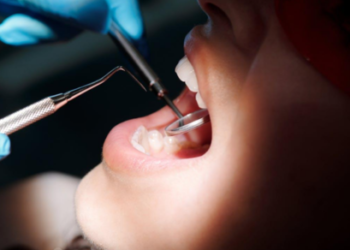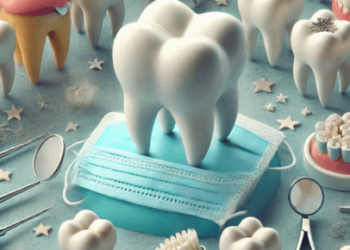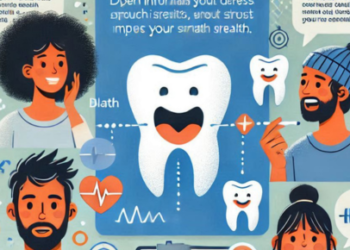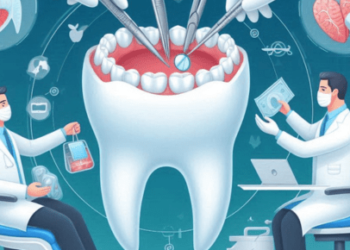
The family dentist in Fort Myers, FL, understands the unique oral health challenges faced by diabetic patients. Diabetes can increase the risk of periodontal disease, gum inflammation, and other oral health issues, making regular dental cleanings crucial for maintaining overall health. Dentists emphasize the importance of frequent dental cleanings for diabetic patients to prevent complications and ensure optimal oral wellness. By scheduling regular cleanings every 3-6 months, diabetic patients can reduce their risk of periodontal disease, improve blood sugar control, and enhance their overall quality of life.
Understanding Diabetes
Diabetes is a chronic metabolic disorder characterized by elevated blood sugar levels, resulting from the body’s inability to produce or effectively utilize insulin. Insulin, a hormone produced by the pancreas, regulates blood glucose levels by facilitating glucose uptake in cells. In diabetes, this process is disrupted, leading to hyperglycemia (high blood sugar).
There are several types of diabetes:
- Type 1 diabetes: An autoimmune disease where the pancreas stops producing insulin.
- Type 2 diabetes: The body becomes resistant to insulin, often due to lifestyle factors.
- Gestational diabetes: Developed during pregnancy, typically resolving after delivery.
- LADA (Latent Autoimmune Diabetes in Adults): A form of type 1 diabetes developing in adulthood.
- Prediabetes: Blood sugar levels are higher than normal but not high enough for diabetes diagnosis.
The Diabetes-Periodontal Disease Connection
Research has established a bidirectional relationship between diabetes and periodontal disease, highlighting the importance of managing both conditions simultaneously.
How Diabetes Affects Periodontal Health
- Increased Blood Sugar Levels: High blood sugar levels damage blood vessels, reducing oxygen delivery to gums and supporting tissues.
- Enhanced Bacterial Growth: Diabetes fosters an environment conducive to bacterial growth, leading to infection and inflammation.
- Impaired Collagen Production: Diabetes impairs collagen production, weakening gum tissue and bone structure.
- Neuropathy and Vasculopathy: Diabetes-related nerve damage and blood vessel damage impair healing and increase infection risk.
How Periodontal Disease Affects Diabetes
- Systemic Inflammation: Periodontal disease increases systemic inflammation, exacerbating insulin resistance.
- Elevated Blood Sugar Levels: Periodontal disease can increase blood sugar levels, complicating diabetes management.
- Increased Risk of Infections: Periodontal disease increases the risk of infections, which can worsen diabetes.
Consequences of Untreated Periodontal Disease in Diabetic Patients
- Uncontrolled blood sugar levels
- Increased risk of diabetic complications
- Tooth loss and gum recession
- Cardiovascular disease and other systemic conditions
Importance of Dental Cleanings for Diabetic Patients
Regular dental cleanings play a vital role in maintaining oral health and controlling diabetes. Benefits include:
- Removal of plaque and tartar: Prevents bacterial buildup and inflammation.
- Gum disease prevention: Early detection and treatment of periodontal disease.
- Reduced infection risk: Minimizes risk of infections, which can exacerbate diabetes.
- Improved blood sugar control: Studies suggest that periodontal therapy improves glycemic control.
- Enhanced overall health: Links between periodontal disease and systemic conditions, such as cardiovascular disease and kidney disease.
Frequency of Dental Cleanings for Diabetic Patients
The American Diabetes Association and the American Dental Association recommend:
- Initial evaluation: Comprehensive dental examination and periodontal evaluation.
- Regular cleanings: Every 3-6 months, depending on individual risk factors.
- Periodontal maintenance therapy: Regular cleanings and monitoring for patients with periodontal disease.
Additional Considerations for Diabetic Patients
- Communicate with your dentist: Inform your dentist about your diabetes and medication.
- Monitor blood sugar levels: Before and after dental appointments.
- Adjust dental treatment: Consider timing and type of treatment.
- Oral hygiene: Practice good oral hygiene, including brushing and flossing.
Final Words
Regular dental cleanings play a vital role in maintaining oral health and overall well-being for diabetic patients. The intricate relationship between diabetes and periodontal disease necessitates frequent dental cleanings to prevent complications and ensure optimal health outcomes. By scheduling dental cleanings every 3-6 months, diabetic patients can reduce their risk of periodontal disease, improve blood sugar control, and minimize the likelihood of systemic infections. Furthermore, collaborative care between healthcare providers and dentists is crucial for managing diabetes and periodontal disease simultaneously.
















